#sap basis certification
Explore tagged Tumblr posts
Text

Dive into the world of SAP with RH Soft Tech! 🚀 Unlock the power of SAP software and elevate your career to new heights. Contact us today to learn more! 🌟 #RHSoftTech #SAPTraining
#rhsofttech#sap basis course online#sap basis training online#sap basis certification#sap course in mumbai#sap fico course online#Sap online course near me#sap basis#sap hana#sap hana training#sap online training
1 note
·
View note
Text
SAP Basis
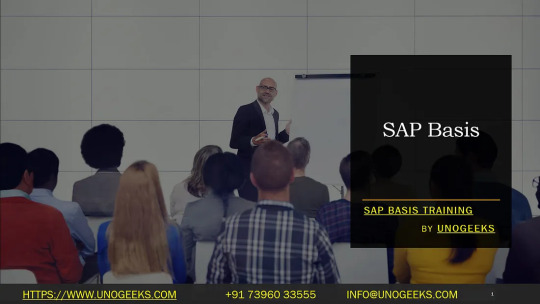
SAP Basis: The Backbone of Your SAP Landscape
SAP applications form the core of many modern enterprises. Financial data, customer interactions, supply chain logistics, and many other critical business operations rely on SAP’s robust solutions. But what powers these solutions? That’s where SAP Basis comes in.
What is SAP Basis?
In simple terms, SAP Basis is the technological foundation upon which SAP applications are built and run. It’s like the operating system specifically for your SAP world. Basis provides a set of middleware components and administration tools that ensure your SAP applications function smoothly and reliably.
Key Responsibilities of an SAP Basis Administrator
SAP Basis administrators are the unsung heroes of the SAP world, responsible for a wide range of tasks:
Installation and Configuration: Basis admins handle the initial installation and setup of SAP systems, ensuring they’re configured correctly for your business needs.
System Administration: They perform ongoing tasks like monitoring system health, applying patches and upgrades, and managing system resources.
Database Management: This includes database installation, configuration, backup and restore processes, and overall database health.
Performance Tuning: Basis admins identify bottlenecks, optimize settings, and ensure applications run at their peak.
User Management: Creating and managing user accounts, assigning roles and authorizations for secure access control.
Troubleshooting: When problems arise, these experts step up to diagnose and resolve issues promptly, minimizing downtime for the business.
Transport Management: They oversee the movement of code changes and configuration updates between different SAP environments (e.g., development, testing, production).
Components of SAP Basis
Some core components that make up SAP Basis include:
SAP NetWeaver: The core technology platform that provides the foundation for different SAP products.
ABAP Workbench: The development environment for creating custom ABAP code (SAP’s primary programming language).
SAP GUI: The graphical user interface used to interact with SAP systems.
Transport Management System: Tools for managing and tracking changes across SAP environments.
Solution Manager: A centralized platform for system monitoring, diagnostics, and support tools.
Why is SAP Basis Important?
Reliability and Stability: A well-managed SAP Basis system means your critical business applications will run smoothly, minimizing disruptions and downtime.
Performance: Basis expertise ensures that your SAP applications are optimized to deliver their best, promoting efficient business operations.
Security: Basis includes a suite of tools to manage user access, protect sensitive data, and ensure compliance with security standards.
Agility: A flexible Basis layer gives your business the ability to adapt to changing needs by scaling SAP deployments or introducing new components.
Becoming an SAP Basis Administrator
A career in SAP Basis is both challenging and rewarding. If you have a knack for technical troubleshooting, problem-solving, and enjoy working with complex systems, here’s how to get started:
Get a Technical Foundation: A background in computer science, database administration, or system administration is a strong starting point.
Gain SAP Expertise: Take SAP Basis training courses and explore online resources and tutorials.
Certifications: Consider getting SAP-certified in Basis administration to validate your skills.
Hands-on Experience: Look for internship or entry-level positions that allow you to work on real SAP systems.
The Future of SAP Basis
As SAP continues to evolve into a cloud-centric platform, Basis will adapt too. Knowledge of cloud technologies, containerization, and automation will become increasingly valuable for Basis administrators.
youtube
You can find more information about SAP BASIS in this SAP BASIS Link
Conclusion:
Unogeeks is the №1 IT Training Institute for SAP BASIS Training. Anyone Disagree? Please drop in a comment
You can check out our other latest blogs on SAP BASIS here — SAP BASIS Blogs
You can check out our Best In Class SAP BASIS Details here — SAP BASIS Training
Follow & Connect with us:
— — — — — — — — — — — -
For Training inquiries:
Call/Whatsapp: +91 73960 33555
Mail us at: [email protected]
Our Website ➜ https://unogeeks.com
Follow us:
Instagram: https://www.instagram.com/unogeeks
Facebook: https://www.facebook.com/UnogeeksSoftwareTrainingInstitute
Twitter: https://twitter.com/unogeek
2 notes
·
View notes
Text
Why SAP global certification is the Best program for career growth & global job opportunity?
What is SAP? SAP is System Application and Products in Data processing. Nowadays having a proper certification can significantly boost ones career and open doors for global job opportunities. One such leading programs is SAP which provides enterprise software solutions. SAP software is an European multinational company, they focus on providing software solutions for better understanding and management of business and their customers.
Some of the comprehensive courses provided by SAP are finance, logistics, human resources and many more. The course certification is acknowledged on global basis.
One of the key advantages of the SAP global certification program is its recognition worldwide. With over 400,000 customers in more than 180 countries using SAP solutions, there is a high demand for professionals with SAP skills across the globe .This opens up a plethora of job opportunities on a global scale.
Benefits of SAP courses
Streamlined Processes: SAP helps organizations streamline their business processes by automating tasks, eliminating the manual effort, and reducing inefficiencies.
Enhanced Decision-Making: the course provides robust data management and analytics capabilities, enabling organizations to access real-time, accurate information.
Improved Collaboration and Communication: It enables the seamless integration and data exchange between different functional areas, enhancing cross-functional collaboration and teamwork.
Increased Visibility and Control: SAP offers comprehensive visibility into organizational data, processes, and operations.
Scalability and Flexibility: SAP solutions are scalable and flexible, accommodating the changing needs and growth of organizations.
Enhanced Customer Experience: SAP's customer relationship management (CRM) solutions enable organizations to deliver a personalized and exceptional customer experience.
Improved Supply Chain Management: It enables organizations to improve demand planning, inventory management, procurement, and logistics, resulting in reduced costs, improved order fulfillment, and better customer satisfaction.
Compliance and Risk Management: It provides functionalities for governance, risk management, and compliance (GRC), helping organizations mitigate risks, ensure data security, and demonstrate compliance with legal and industry regulations.
Innovation and Digital Transformation: SAP embraces emerging technologies and drives innovation to support organizations in their digital transformation journey.
As multinational companies expand their operations across borders, they require professionals who can support and manage their SAP software system worldwide. This opens up many possibilities for career growth in international work experiences and also being an SAP certified professional it can also lead to higher earning potential, individuals with an SAP certificates tend to earn more as compared to their non-certified counterparts. This financial incentive further emphasizes the value of investing in an SAP global certification for career growth.
Job opportunities in SAP
SAP Consultant: SAP consultants provide expertise and guidance on implementing, configuring, and customizing SAP solutions to meet the specific needs of organizations
SAP Functional Analyst: SAP functional analysts focus on understanding business requirements and translating them into functional specifications for SAP solutions.
SAP Technical Developer: They are responsible for developing, customizing, and maintaining SAP applications.
SAP Project Manager: SAP project managers oversee the planning, execution, and delivery of SAP implementation or upgrade projects
SAP Administrator: SAP Basis administrators manage the technical infrastructure of SAP systems. They are responsible for system installation, configuration, monitoring, performance optimization, and security management of SAP landscapes
SAP Data Analyst: SAP data analysts focus on managing and analyzing data within SAP systems. They extract and manipulate data, perform data validation, create reports and dashboards.
SAP Supply Chain Consultant: SAP supply chain consultants work on projects related to supply chain management, procurement, inventory management, logistics, and production planning using SAP solutions.
Why is SAP global certification important?
SAP Global Certification is important as it validates an individual’s skills, acquires an industry recognition, provides a competitive advantage, strengthens career opportunities, opens up global job prospects, promotes continuous learning, and instills employer confidence. Thus considered a valuable investment for professionals seeking career growth in the field of SAP and for organizations looking to hire skilled SAP professionals.
#course#sap course#education#learning#career#student#careeropportunities#sap online training#productivity
2 notes
·
View notes
Text
SAP Basis Training in Bangalore: A Complete Guide to Mastering SAP Administration

Introduction
SAP Basis forms the backbone of any SAP system that manages the technical considerations of SAP applications. It ensures smooth operation in system administration, database management, security, and performance optimization. Training demand has increased for competent SAP Basis professionals, owing to the growing reliance of enterprises on SAP for all business operations. Therefore, if you are planning to have a career in SAP administration, joining SAP Basis Training in Bangalore can lead you to tremendous success.
The city of Bangalore in India is often termed Silicon Valley due to the presence of numerous top IT companies and training institutes that provide world-class courses in SAP. SAP Basis training in Bangalore offers prospective candidates who are either freshers or in job/IT professionals opportunities for hands-on experience, knowledge of the different sectors, and job placements.
Understanding SAP Basis and Its Maintainance
SAP Basis is the technical foundation that exists because of which SAP applications run without any glitches. It acts as a middleware between operating systems and databases on the one hand and SAP modules on the other, allowing applications to communicate properly and integrate smoothly. It is the aprons of what holds the big microcosm of SAP systems together, functionalities including the configuration of SAP systems landscapes, administration of end-user access and security, system performance checks, database integrity and backup checks, troubleshooting system issues, and assisting SAP upgrades and migrations.
Due to global enterprises using SAP, companies will require a competent SAP Basis admin to keep the running efficient systems. Therefore, SAP Basis Training in Bangalore becomes a great investment for anyone seeking a stable and well-paid career in IT.
Advantages of Joining SAP Basis Training in Bangalore
Bangalore provides a conducive environment for SAP programs due to its robust IT ecosystem and a plethora of experienced trainers available there. There are some benefits that one can avail of when enrolled for SAP Basis training in Bangalore, like Inputs on an industry-relevant curriculum, practical training through live SAP projects, real-time interaction with certified SAP instructors, placement assistance, and networking opportunities with professionals and companies looking for SAP Basis experts.
With all these advantages considering SAP Basis Training in Bangalore, such a decision can immensely elevate your career prospects in SAP system administration.
Career Opportunities After SAP Basis Training
Demand for SAP Basis professionals can be experienced across a plethora of industries - IT, manufacturing, banking, retail, and healthcare. Following completion of SAP Basis training, students are free to pursue several positions, including SAP Basis Administrator, SAP System Engineer, SAP Consultant, SAP Solution Architect, and SAP HANA Administrator. These job roles will provide exposure to SAP system support, troubleshooting any technical issues, and ensuring that SAP remains effectively operational in organizations. The salaries for SAP Basis professionals are pretty decent and rise with experience as these SAs can move into leadership roles or into specialization areas like SAP Security and SAP HANA administration.
Choosing the Best SAP Basis Training Institute in Bangalore
The perfect choice of training institute will be of utmost importance for anyone willing to gain hands-on knowledge and industry exposure in SAP Basis. In Bangalore, there are a lot of reputed institutes that run structured courses in practical learning. The selection of an institute for SAP Basis Training in Bangalore can also be considered an accreditation and certification issue, mostly trainer-experience dependent, thereafter on course content, availability of hands-on labs, and placement support. A good training institute should treat its curriculum as a competitive edge for students when they are in the job market, which should generally be perceived as industry-aligned and real-world case study-orientated with hands-on actual SAP server practice, thus enabling students to get an edge against each other in the job market.
Conclusion
SAP Basis, the backbone of SAP systems, keeps the systems stable, fast, and secure. An SAP Basis Training in Bangalore programs provide for laying a solid technical foundation and facilitating an upward career potential in SAP administration. Structured training, practical exposure to real-world industry projects, and career support help provide the best learning atmosphere for anyone wanting to become an SAP Basis professional.
As enterprises seek to adopt SAP solutions, SAP Basis professionals will again face high demand. An investment in SAP Basis training can set the tone for some fruitful career opportunities while also availing security with longevity. The course can be a life-changer for anyone, from a novice to an experienced IT professional, setting him or her on the road to accomplishing career goals.
0 notes
Text
SAP ABAP Training Overview
SAP ABAP Training Overview
Introduction to SAP ABAP
SAP ABAP Course in online Training Sophisticated, Application Programming (ABAP) is top -level programming to succeed the application in the SAP circumstance. It allows businesses to make, enhance, and increase SAP applications to meet specific requirements. SAP solutions are on high demand across industries, and mastering the skill of ABAP is very valuable for IT professionals.
Importance of SAP ABAP Training SAP ABAP is the key for professionals looking to specialize in SAP development. Some of the main reasons for doing ABAP training are:
Industry Relevance – Many organizations use SAP, so the expertise in ABAP is very desirable.
Integration Capabilities – ABAP integrates seamlessly with SAP HANA, SAP Fiori, and other modern technologies.
Career Advancement – ABAP developers have a good career prospect in SAP consulting and development roles. Customization and Performance Optimization – Organizations apply ABAP to customize SAP solutions for higher productivity. Major SAP ABAP Training Elements
A formalized SAP ABAP training course entails the following topics of the language:
SAP System Architecture
Understanding the fundamental elements of the SAP world is crucial before entering the ABAP programming arena:
SAP NetWeaver Platform
SAP GUI and Web-Based Interfaces
Database and Application Layers
SAP Modules and Business Processes
ABAP Development Environment
SAP ABAP development is done within the ABAP Workbench that includes:
ABAP Editor – Writing and editing ABAP code.
Data Dictionary (SE11) – Defining database objects such as tables and views.
Function Builder (SE37) – Creating function modules.
Class Builder (SE24) – Implementing object-oriented programming.
Debugging Tools – Identifying and fixing code errors.
Core Concepts Covered under Training
A full-fledged SAP ABAP training program is designed to initiate learners into crucial ABAP concepts:
Basic Syntax and Data Types
Data Types: Integer, Float, Character, String, Date, Time
Variables and Constants
Operators and Expressions
Control Statements (IF, CASE, LOOP, WHILE)
Modularization Techniques
Subroutines (FORM and ENDFORM)
Function Modules
Methods and Classes (Object-Oriented ABAP)
Database Interaction
Creating Database Tables
SELECT, INSERT, UPDATE, DELETE Statements
Joins and Aggregate Functions
Open SQL vs. Native SQL
Report Development
Classical Reports
Interactive Reports
ALV (ABAP List Viewer) Reports
SmartForms and SAP Script
Debugging and Performance Optimization
Debugging ABAP Programs
Runtime Analysis and SQL Tracing
Code Inspector and Performance Tuning
Selecting a Quality SAP ABAP Training Program
There are several criteria to look for in choosing an Internet-based or in-class ABAP training course:
Comprehensive Curriculum : The program should cover all types of basic and advanced ABAP topics. Practical Exercises : Prepared assignments and actual projects will enforce the learned concepts. Experienced Trainers : Learning from industry professionals will enhance knowledge retention. Certification Preparation : While some of these programs prepare learners for SAP ABAP certification. Community Support – There is a learner community and instructor support for learning.
Career Options for ABAP Developers
There are many career options that arise with ABAP expertise, including:
ABAP Developer – Develops and maintains SAP applications.
SAP Technical Consultant – Implementation and optimization of SAP solutions.
SAP Functional Consultant – Team collaboration with the technical teams for SAP customization.
SAP Basis Administrator – Administration of SAP system landscapes.
SAP HANA Developer – Work on SAP's in-memory computing platform.
Conclusion The training in SAP ABAP gives knowledge and skills in developing, customizing, and optimizing SAP applications. With the right training structure, a beginner will build his confidence and expertise in ABAP programming to result in great career prospects within the SAP ecosystem. Mastering ABAP gives professionals the potential to contribute to business success in businesses using SAP solutions and career advancement in enterprise software development.
1 note
·
View note
Text
Yes, Oracle developers can transition into a career in SAP HANA, and the transition can be relatively smooth depending on their background. Since Oracle and SAP HANA are both relational database management systems (RDBMS), many of the core database concepts remain the same. However, there are some key differences and learning areas to focus on.
Why the Transition is Feasible
SQL and Database KnowledgeIf you have experience with Oracle SQL, PL/SQL, indexing, and performance tuning, then learning SAP HANA SQLScript (HANA's procedural language) will be easier.SAP HANA uses columnar storage and in-memory computing, which differ from traditional row-based Oracle databases.
Similar ConceptsStored procedures, functions, triggers exist in both Oracle and SAP HANA.Query optimization is crucial in both, though SAP HANA focuses more on code-to-data paradigm.
Programming Knowledge (If Applicable)If you have Oracle APEX, Forms, or Java development experience, you can transition to SAP UI5 (Fiori), ABAP, or HANA CDS Views.If you worked with PL/SQL procedures, moving to HANA Procedures in SQLScript is logical.
ETL and Data IntegrationIf you worked with Oracle Data Integrator (ODI) or Informatica, transitioning to SAP BW/4HANA or SAP Data Services is possible.
Key Areas to Learn for a Smooth Transition
SAP HANA BasicsIn-memory computing, columnar storage, and HANA architecture.
HANA SQLScriptEquivalent to Oracle PL/SQL but optimized for in-memory processing.
SAP HANA ModelingCreating Calculation Views, Analytical Views, and leveraging Core Data Services (CDS Views).
ABAP for HANA (If Moving to SAP Development)Basics of ABAP on HANA, including CDS views and AMDP (ABAP Managed Database Procedures).
SAP Business Technology Platform (BTP)Cloud-based extensions and integrations using SAP HANA.
SAP S/4HANA Functional KnowledgeUnderstanding how SAP HANA supports ERP applications.
Suggested Learning Path
Start with SAP HANA SQLScript & ModelingLearn SQLScript, table functions, and calculation views.Use SAP HANA Studio or SAP Web IDE.
Understand SAP HANA Administration (if coming from an Oracle DBA background)Learn HANA backup/recovery, performance tuning, and security.
Explore ABAP on HANA (Optional for Developers)Learn ABAP CDS Views and AMDP to optimize performance.
Get Hands-on PracticeTry SAP HANA Express Edition (free version) for practice.
Consider SAP CertificationsSAP HANA Technology Associate (for DB-focused roles).SAP BW/4HANA Certification (if working with data warehousing).
Career Options in SAP HANA for Oracle Developers
SAP HANA Developer – SQLScript, Calculation Views, and CDS Views.
SAP HANA Consultant – HANA modeling, performance tuning, and administration.
SAP ABAP on HANA Developer – Coding optimized ABAP programs.
SAP BW/4HANA Consultant – Data warehousing in SAP HANA.
SAP Basis/HANA Administrator – HANA database administration and security.
SAP Data Engineer – ETL with SAP Data Services, BW, or SLT.
Final Thoughts
Oracle developers, especially those with PL/SQL, DBA, or data warehousing experience, can transition into SAP HANA with relative ease. The key is learning HANA SQLScript, modeling, and understanding SAP-specific concepts.
Mail us on [email protected]
Website: Anubhav Online Trainings | UI5, Fiori, S/4HANA Trainings
youtube
0 notes
Text
10 Best SAP Training Institutes in India: 2024 [Updated]
SAP, a name identical to business management software, has intrigued me since my college days. I wondered why everyone wanted a certification in SAP. Why was it special? All I knew was that an SAP-certified candidate possesses brilliant career prospects.
What I recognized as a flavor of the season turned into an unmistakable career move with unlimited opportunities for progress.
Find our Upcoming Batches of SAP FICO & SAP MM Course Training:-
Batch Mode Price Starts Every Week Live Virtual Classroom 35000 QUERY NOW
Today, SAP is essential for the success of every organization, as it facilitates automation and optimizes the management of time, money, and other resources.
What is SAP?
SAP stands for Systems Applications and Products in data processing and it’s an enterprise resource planning software that is used across functions.
In layman's words, it’s an easy-to-use tool to simplify business processes.
Organizations use this software in operations such as HRM (Human Resource Management), CRM (Customer Relationship Management), Financial statement analysis, distribution, logistics, and more.
In summary, all these processes get pooled centrally into one program to make the software sophisticated. It’s an ERP system that integrates all business activities for a more productive outcome.
For those who don’t know, first I will explain ERP.
Enterprise Resource Planning is fundamental for the smooth functioning of all businesses. A business owner uses ERP systems to automate all business processes like supply chain, HR, finance, manufacturing, CRM, and so forth.
In this age, with the ever-expanding demand and supply, every business requires an end to end processes to handle and simplify business management.
Thus, the ERP tools are implemented to examine current business processes and streamline all operations using data models.
SAP software is also a type of ERP system. SYSPRO, Scoro, Odoo, Sage Intacct, and Netsuite ERP are other popular ERP software.
QUERY NOW APPLY NOW
Hence, let’s find out the "10 Best SAP Institutes in India". I hope this study helps all researchers in widening the scope of their careers.
The following institutions can help kick-start your career and boost it effectively.
QUERY NOW APPLY NOW
1:- SIPL Training Institute
SIPL SAP Course Details – fees, Duration, Salary & Job, Career Options:
SAP Course & CERTIFICATION: Are You Ready To Get Your Dream Job In One Of India's Top Companies?
SIPL Training provides real-time & placement-focused one of The Best SAP Training in Lucknow. SIPL SAP Course includes basic to advanced level Training. SAP Course is designed to get placement in Top MNCs (affordable SAP Course fees) in Lucknow as quickly as you complete the SAP training & placement Programme.
SIPL SAP Trainers are SAP-certified experts / Real-Time experienced with Top Companies & working professionals with hands-on real-time multiple SAP projects knowledge. We have designed the Best SAP Course content and syllabus & SAP Course Duration based on students/Industry requirements to achieve everyone's career goal.
In the SIPL SAP Training program, you can choose any SAP modules at affordable fees, SAP Training Course fees with SAP Real-time projects, and SAP certification placement training program.
SIPL SAP Training in Lucknow, we provide one of the best SAP Training in Lucknow, We deliver Industry Required SAP Training courses. SIPL is also known as the Best SAP training institute in Lucknow.
QUERY NOW APPLY NOW
SAP Courses Modules - Details – Fees, Duration, Salary & Job, Career Options:
SAP Training The only Best SAP Training & Placement Program where you get in-depth practical hands-on exposure of all modules By Industry Experts.
View SAP More Details
SAP FICO Course
SAP MM Course
SAP SCM Course
SAP HCM Course
SAP BASIS Course
SAP ABAP Course
SAP PP Course
SAP EWM Course
SAP QM Course
SAP PM Course
QUERY NOW APPLY NOW
Industry Required - 100% Practical SAP Course - LIVE Server-Job Oriented + Practical Based
As per Industry Req., SIPL designed SAP Course content & syllabus, 100% Practical, Develop Skills based on per Demand of the current Top Industry.
Industry Expert SAP Trainers
SIPL Provide the Best Industry Expert SAP trainers- They Provide Practical based SAP 1 to 1 sessions with industry standards to get a job & work confidently
SAP LIVE Server - Learning System Access
SIPL Provides SAP Learning System Access which lets You practice your skills & build experience in a LIVE SAP environment
SAP Mock Interviews & SAP CV/Resume Preparation
SIPL conducts Unlimited SAP mock interviews session via profile building, prepares resumes, SAP employability tests
100% Placement Support
SIPL provides unlimited 100% Placement Interviews/Job Support For SAP Candidates to get jobs in Top Companies For SAP Consultant Profile
SIPL Training - ISO Certified
We're ISO Certified Training Institute in Lucknow, the International Organization for Standardization. We develop and publish SAP International Standards.
SAP-Job Oriented Specialization
Industry-required specialization SAP Course that prepares professionals & freshers to start a career with world-top companies
Best in class SAP Consultant 100% placement Support
A dedicated SAP Placement Team on How to Build a Career as SAP Consultant.
SAP Placement Procedure & Activities
SIPL Placement department fully devotes itself to catering to the needs regarding candidates' placement, Students are trained with continuous placement programs by Industry experts
Courses + Study Materials
Assignment + Project + Soft+Hard Skills Training
Expert Mentors + Grooming Sessions
Interviews + Placements
QUERY NOW APPLY NOW
100 + Cities in India where SIPL Training SAP Course is provided:
2:- SAP Mantra Training
SAP Mantra Training Institute is a Certified Technology Consulting Company with expertise in SAP software solutions & enterprise application services. It operates across geographies, industry verticals, functional domains, and technical landscapes. SIPL SAP Training in Lucknow, we provide one of the best SAP Training in Lucknow, we deliver Industry Required SAP FICO Training, SAP MM Training, SAP SD Training, SAP HR Training, and You Can Say SAP Training. SIPL is also known as the best SAP training institute in Lucknow, also provides Placement in SAP FICO Training, SAP MM Training, SAP SD Training, SAP HR Training. SIPL SAP Training covers all the latest updates of the technology by 7-14 Years Industry Expert Trainers. SAP FICO Training (Financial Accounting & Controlling) SAP MM Training (Material Management) SAP SD Training (Sales & Distribution) SAP HR/HCM Training (Human Resources/Human Capital Management) SAP Basis Training (Business Application Software Integrated Solution) SAP PP Training (SAP Production Planning) SAP PM Training (SAP Plant Maintenance) SAP ABAP Training (Advanced Business Application Programming) SAP WM Training (SAP Warehouse Management)
QUERY NOW APPLY NOW
3:- Victoria University
This university provides a degree in Master of Business (Enterprise Resource Planning Systems). It is a leader in providing SAP education by providing the most comprehensive program; by emphasizing SAP R/3. These latest SAP Solutions include :
Advance planner and optimizing
Business objects and business intelligence
Customer Relationship Manager
Netweaver components
Business information warehouse
Graduates from this university can find the following career opportunities:
Leadership roles in ICT
ERP analyst
Business software manager
Business analyst
SAP consultant
QUERY NOW APPLY NOW
4. Atos India

Atos India has been acknowledged as the leading SAP partner of India. They have been committed to educating in this field for the past 20 years. They cater to different people through their expertise in varied courses of SAP. Established in 1999, it is the first SAP training institution in India. Moreover, they recognize the constantly growing and changing needs, then evolve to adapt to the SAP market.
They have a comprehensive placement program with the following benefits:
Many company tie-ups.
They provide the highest salary package for the students.
They provide grooming and personality development training to all the students for better placement opportunities.
Atos India centers are in Bangalore, Chennai, Pune, and Mumbai.
They also offer corporate training to SAP end-users and project teams with or without certification. These courses are aimed to fulfill the skill gaps in the existing SAP users and only focus on specific needs. These are need-based short-term courses.
QUERY NOW APPLY NOW
5. VACSnSAP Edu
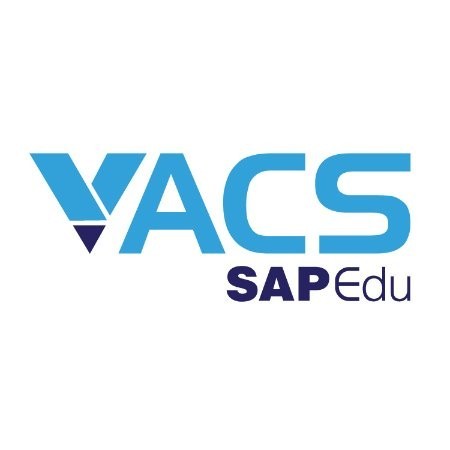
VACS is associated with SAP and provides programs that make candidates job-ready consultants. This training institute is at Thane(W), Maharashtra, India.
These programs ensure that every individual who completes the course can easily take on challenging jobs and be on the right career path. They are supported by VACS Technology Pvt. Ltd which is an SAP consulting company for the past 10 years.
They assure the shortest placement time compared to other SAP Institutions in India. On an industry average, it takes about 2 to 3 months to place candidates, but VCAS place their candidates within 1 to 2 months.
QUERY NOW APPLY NOW
6. Incomp software technologies Hyderabad

One of the best in India, Income software technologies deliver training programs on various courses, and SAP is one of its specialties. They have the SAP ABAP and SAP Basis programs. They evolve constantly to meet the ever-changing technology. Income also has the perfect programs that fit your budget.
QUERY NOW APPLY NOW
7. SMEClabs

Established in 2001, SMEClabs is an ISO 9000:2015-certified company based in Kochi. It has received many accolades from leading companies from across the globe, such as TUV Rheinland, Certiport, Microsoft, Schneider Electric, and many more. Does it also have accreditation from NSDC? (National Skill Development Centre) and IISC. SMEClabs is a leader in providing various training programs, especially SAP courses in India.
They train on :
SAP FICO
SAP MM (Material Management)
SAP PP (Production Planning and Control)
SAP SD (Sales)
This institution equips students with curriculums required by industry standards by collaborating with industry and academic experts. The instructors provide maximum support and help students complete the course.
This program is both offline and online, keeping in mind the needs of the students. A100% placement assistance is also provided to the participants
QUERY NOW APPLY NOW
8. ICA Edu Skills

ICA Edu skills started in 1999 with an aim to educate all at affordable fees. Not only this, but they also focus on placing candidates at MNCs where they require skilled employees. They support their participants by supporting them with practical training and getting them industry-ready.
Today, they are one of the best institutions to provide SAP FICO training in India. They are renowned for their financial, accounting, and tax-related training.
They have over 200 branches across the nation with many accolades under their belt. Their mission is to reduce unemployment by getting all candidates industry-ready.
QUERY NOW APPLY NOW
9. MNP Skill Development Centre
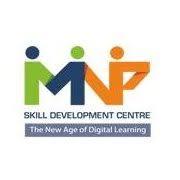
MNP is a focus-driven and performance-oriented training center in Kolkata. They have a diverse set of programs and one of the most popular is the SAP training they offer. They are an SAP specialty training institution in India and offer the following courses:
SAP – HCM
SAP – FICO
SAP – SD
SAP – PP
SAP – MM
The duration of the modules is anywhere between 60 – 80 hours or 3 months. The price for each module is Rs. 29,500 and an added advantage is they provide genuine job assistance.
QUERY NOW APPLY NOW
10. ECT

Another leading SAP training institute in India is Ecorp Training and services. this institute has provided cutting-edge training to its students and also helped many companies in revamping their business strategies. The trainers make sure that the training methods allow the complete incorporation of SAP concepts and methodologies.
Key benefits
Practical-based training
Real-time scenario projects
Free study material
I have provided information about the 10 best SAP courses in India and hope this really helps in taking the right decision.
QUERY NOW APPLY NOW
SAP Overview
SAP is a multinational company founded by Tsira, Hope, Hector, Plattner, and Wellenreuther in 1972. It has expanded from a 5-member unit to a multinational organization. Its headquarters is in Walldorf, Germany with over 100,000 employees worldwide. It has over 140,000 establishments and over 100 business functions across all processes.
They have many other competitors, but they are still considered the best. However, the company’s legal corporate name is SAP SE and SE stands for Societas Europaea.
Christian Klein is the head of the Executive Board of SAP SE, and at 41, is one of the youngest CEOs of Europe.
What are the different SAP solutions available?
SAP offers various solutions across functions:
ERP and Finance:This offers various financial reports including cash-flow projections and order statuses. This provides financial data and reduces all manual errors, such as duplicate entries.
CRM and customer experience:An SAP CRM system helps to deal with customer needs efficiently. It also helps account management and be more receptive to customer needs.
Network and Spend Management:This refers to suppliers’ relationships and purchases made on behalf of the company. It helps trace where money is spent and optimizes the process effectively through automation.It controls supply and procurement costs.
Digital supply chain:SAP makes the supply chain more smooth by eliminating all manual entries. Since everything is digitalised, the chances of errors are very less.
HR and people engagement: This system helps in checking the payroll and attendance of employees more accurately.
Experience management:It examines and follows the relationship between the company and its people. It helps ease the interaction and creates room for improvement.
Business technology platform:SAP engages in data and database management through intelligent technology.
Digital transformation:SAP transforms organizations by using Artificial Intelligence and Machine learning. This improves the performance and operations of the company.
Small and midsize enterprises:SAP helps these small and mid-sized enterprises in understanding and managing the cash flow, supply chain, and employee engagement.
Industry solutions:SAP offers industry-specific ERP solutions to various industries like aerospace, banking, defense, and insurance.
Given these points, let’s get back to SAP training. Here we will observe the different SAP training courses.
SAP courses can be divided into:
Functional Courses:This refers to the subject area where the consultant focuses on core areas such as HR, Finance, CRM, Supply Chain Management, Sales and Distribution, Business Intelligence, and more. If the consultant comes from a business operational background, then functional training is suitable.
Technical Courses: A technical consultant possesses an academic background where he understands the programming language. They have a comprehensive knowledge of both ‘Advanced Business Application Programming’ and ‘Master Data Management’.
However, the choice of the training program depends on your background. If you belong to a business operational background, then you can opt for a functional course; if your expertise lies in programming languages, then a technical course would be the best.
What are the benefits of SAP certification?
Not only SAP certification has created a buzz among people from different fields but it has also impacted the world successfully.
It has created many jobs and helped build the career of many. Here are the advantages of the courses:
Job creation
Enrolling in SAP gives opportunities to many as they are directly or indirectly benefited. An SAP certificate betters career growth and helps achieve many goals. People move from one place to another in search of jobs and through this certification, placements happen much easier.
Financial gain
Investing in this course acts as a long-term investment for many students. They believe this certification will fetch jobs that are high paying.
The fact is, your subject knowledge plays a big role too.
Reputation and recognition
SAP-certified consultants enjoy special recognition and reputation among employers and colleagues and sometimes even among family and friends. This certification also increases the prospects of the consultants.
Promotion
Many employees with SAP Certification find it easier to obtain promotions at existing jobs and their success rate increases. At times, Employers ask their employees to take up the course for more knowledge and add value to the company.
Self-respect and prestige
A certificate from SAP boosts the confidence of many. Not only does It increase the inner value of a person but also increases self-respect.
F.A.Q
Q1. Who should do the SAP course?
Ans. There are no such requirements, however, you must be a graduate ( a B.tech, B.com or B.sc degree is more useful). A little computer knowledge will be helpful.
Q2. Is SAP certification necessary?
Ans.If your benchmark is consultant expertise then the certification is necessary for IT professionals, as they will be prioritized over other trained candidates.
Q3. What is SAP Course used for?
AnsI.t is a system application that helps in business processing across all functionalities. It is a combination of Database Management and human resource software management to help achieve goals faster.
Q4. Which SAP Course is the best?
Ans. These are the top 5 best SAP modules: SAP S/4HANA SAP ECC FI … SAP SCM SAP HCM SAP BI
Q5. Are SAP consultants still in demand in 2025?
Ans. Absolutely, yes. The demand is ever-growing, especially after the introduction of SAP HANA S/4 business suite. It is predicted that the demand is going to rise more
0 notes
Text

How to Build a Reliable SAP Support Team for Your Business
Building a reliable SAP support team is crucial for ensuring the smooth functioning of your SAP systems and maximizing the value they bring to your business. Whether your business operates in South Africa or elsewhere, having a skilled team in place helps prevent disruptions, resolve issues quickly, and optimize your SAP solutions for maximum efficiency. Below is a detailed guide on how to build a successful SAP support team for your business.
1. Define Key Roles and Responsibilities
To establish a well-functioning SAP support team, you must first identify the key roles required for your SAP ecosystem. The roles and responsibilities may vary depending on your business needs, but here are the essential ones:
SAP Consultants (Module Experts):
Role: SAP consultants specialize in specific modules such as SAP FICO, SAP MM, SAP SD, SAP HCM, SAP SuccessFactors, etc. They provide expertise in customizing, configuring, and troubleshooting specific SAP solutions.
Responsibilities: Implementation, customization, troubleshooting, and enhancing SAP solutions.
SAP Administrators:
Role: SAP administrators manage the technical infrastructure of the SAP environment, including installation, upgrades, security, and system maintenance.
Responsibilities: System configuration, monitoring, performance tuning, and ensuring data security and backup procedures are in place.
SAP Developers:
Role: SAP developers focus on writing custom code, integrating SAP with other systems, and creating tailored applications to meet business-specific needs.
Responsibilities: Develop enhancements, custom reports, and interfaces, and ensure SAP systems integrate well with other business applications.
SAP Basis Team:
Role: SAP Basis specialists manage the technical aspects of SAP systems, including performance, system health, security, and troubleshooting.
Responsibilities: Server and database management, system performance monitoring, backups, and SAP landscape administration.
SAP Support Analysts:
Role: These are the frontline support professionals who address daily issues reported by users.
Responsibilities: Issue diagnosis, troubleshooting, and providing guidance on SAP system usage.
2. Hire SAP-Certified Professionals
To ensure that your SAP support team is capable of handling complex issues, it is important to hire SAP-certified professionals. Look for candidates who hold certifications in the specific SAP modules that your business uses. For example:
SAP FICO (Financial Accounting and Controlling) for financial teams
SAP MM (Materials Management) for supply chain teams
SAP SD (Sales and Distribution) for sales and customer service teams
Certified professionals bring in-depth knowledge and practical expertise in implementing, troubleshooting, and enhancing SAP systems. Their experience will help address any technical challenges and optimize your SAP operations.
3. Offer Ongoing Training and Development
SAP is a vast and constantly evolving platform, so continuous training and development are key to maintaining a reliable SAP support team. Here are a few strategies to implement:
Regular Training Sessions: Organize ongoing training for your SAP team to stay updated with the latest SAP releases, features, and best practices. Prompt Edify offers SAP certification courses to ensure that your team is well-equipped with current knowledge.
Cross-Training: Encourage team members to acquire knowledge across multiple SAP modules to create a more versatile and adaptable team. Cross-training helps reduce dependency on specific individuals and allows the team to cover a wider range of issues.
4. Set Clear Communication Channels
Clear communication is vital for resolving issues efficiently and maintaining smooth operations. Here’s how you can foster good communication within your SAP support team:
Designated Point of Contact: Designate a primary contact person for SAP-related queries and issues. This helps in avoiding confusion and streamlining issue resolution.
Regular Meetings: Schedule regular meetings with your SAP support team to discuss ongoing issues, upcoming changes, and business needs.
Collaboration Tools: Use collaboration tools like Slack, Microsoft Teams, or JIRA to improve team communication, track support tickets, and ensure a quick response to critical issues.
5. Define Service Level Agreements (SLAs)
SLAs define the expected response times for different types of support issues, ensuring that the SAP support team works within defined timeframes and priorities. For example:
Critical Issues: Immediate response (within an hour), with a resolution time of 4-6 hours.
High Priority Issues: Response within 2 hours, resolution within 24 hours.
Medium Priority Issues: Response within 4 hours, resolution within 48 hours.
Low Priority Issues: Response within 1 business day, resolution within 72 hours.
Having clear SLAs ensures that expectations are set with users and helps the team stay focused on delivering timely support.
6. Implement Proactive System Monitoring
Proactive monitoring is key to preventing issues before they affect your business operations. With the right tools, your SAP support team can monitor system performance 24/7. Here’s how to implement proactive monitoring:
System Health Checks: Regularly monitor SAP system performance, database health, and server performance.
Automated Alerts: Set up automated alerts to notify the team about potential issues, such as high CPU usage, system downtime, or performance degradation.
Capacity Planning: Ensure your SAP systems can handle increasing data and traffic by planning for future growth and conducting load testing.
.
Conclusion
Building a reliable SAP support team for your business is critical for maintaining the efficiency, security, and performance of your SAP systems. By defining roles, hiring certified professionals, offering continuous training, and implementing effective communication and proactive monitoring, your SAP support team can address challenges promptly and optimize your SAP environment.
Partnering with a trusted SAP service provider like Prompt Edify can also enhance your support capabilities by offering expert advice, certification programs, and customized solutions tailored to your business needs.
#sap certification#sap modules#sap s/4 hana finance course#sap consulting services#sap course#sapconsultant#sap online training#sap fico course#career in sap#sap_certification
0 notes
Text
Best IT Courses In Bhubaneswar: Seeree Services Pvt Ltd.
Introduction:
Seeree is one of the best IT training institute and Software industry, features completely Industrial training on Python , PHP , .NET , C Programming,Java ,IOT , AI , GD PI , ORACLE and ALL CERTIFICATION COURSES as well as provides seminar, cultural activity and jobs.
Course We Provide:
1.Java Fullstack 2.Python Fullstack 3.PHP Fullstack 4.PrePlacement Training & Sp.Eng
.NET Fullstack
6.SEO/Digital Marketing 7.SAP 8.MERN 9.Software Testing
Course 1: WHY BEST JAVA TRAINING CLASSES IN BHUBANESWAR AT SEEREE

A class in Java is where we teach objects how to behave. Education at seeree means way to success. The way of teaching by corporate trainers will bloom your career. We have the best java training classes in Bhubaneswar. 100% Placement Support. Job Support Post Training. This course will give you a firm foundation in Java, commonly used programming language.
Course 2: WHY BEST PYTHON COURSE IN BHUBANESWAR AT SEEREE

Seeree offers best python course in Bhubaneswar with 100% job assurance and low fee. Learn from real time corporate trainers and experienced faculties. Groom your personality with our faculty. Seeree helps to build confidence in students to give exposure to their skills to the company.
Course 3: WHY PHP AT SEEREE

Seeree is the best training institute which provide PHP Training courses in bhubaneswar and all over odisha We aim the students to learn and grow altogether with the need of IT firms.
Course 4: WHY BEST SPOKEN ENGLISH TRAINING CLASSES IN BHUBANESWAR AT SEEREE

Exercise on different grammatical constructions, Identification of the grammatical devices forms different texts like newspapers, poems, stories, etc.
Course 5: WHY BEST .NET COURSE IN BHUBANESWAR AT SEEREE
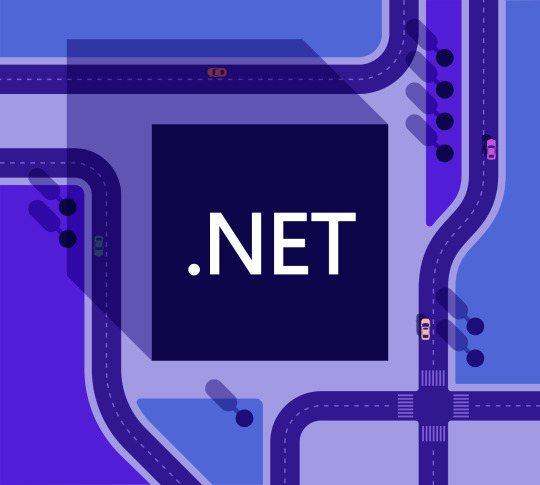
Seeree offers best .NET course in Bhubaneswar with 100% job assurance and low fee. Learn from real time corporate trainers and experienced faculties. Groom your personality with our faculty. Seeree helps to build confidence in students to give exposure to their skills to the company.
Course 6: WHY BEST DIGITAL MARKETING SEO COURSE IN BHUBANESWAR AT SEEREE

Our Digital marketing training course is designed to cut through the clutter of digital marketing and provide a clear overview of this dynamic new world. Marketing is changing. Traditional approaches that have worked for decades, or even centuries, are being swept away. In their place are a confusing mix of new, digital methods of building your brand, reaching out to customers and adding value. Course will cover all key channels, platforms, techniques and strategies and is your fast-track, comprehensive, relevant and cost effective route to becoming a confident, knowledgeable manager with the skills to implement Internet, Social Media and Mobile marketing (eMarketing/marcomms) effectively for business growth and development in the short, medium and long-term. On completion of this course, you would get to know the tid-bids of Digital Marketing. This training Chapter is a comprehensive one covering all the aspects of Digital Marketing. The Chapter is spread over a month and consists of 60 hrs of total sessions.
Course 7: WHY SAP AT SEEREE
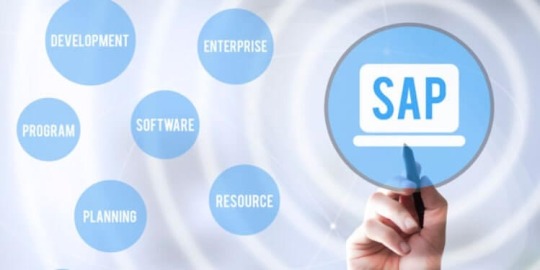
SAP refers to Systems, Applications, and Products in Data Processing. Some of the most common subjects covered in these courses include human resource software administration, database management, and business training. Obtaining SAP certification can be done on a stand-alone basis or as part of a degree program.
Course 8: WHY BEST MERN COURSE AT SEEREE
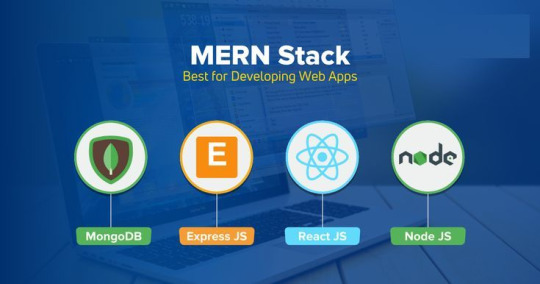
Seeree offers the best MERN course in Bhubaneswar with 100% job assurance and low fees. Learn from real-time corporate trainers and experienced faculty. Seeree helps students build confidence and gain skills to excel in company roles.
Course 9: WHY BEST TESTING COURSE IN BHUBANESWAR AT SEEREE

Seeree offers best Testing course in Bhubaneswar with 100% job assurance and low fee. Learn from real time corporate trainers and experienced faculties. Groom your personality with our faculty. Seeree helps to build confidence in students to give exposure to their skills to the company.
1 note
·
View note
Text
Achieving Success with the SAP Certified Consultant – SAP S/4HANA System Administration (C_TADM_23)
Organizations rely on ERP systems to streamline operations and drive growth. SAP S/4HANA offers capabilities in real-time data processing, AI, and machine learning. For IT professionals specializing in SAP S/4HANA system administration, the SAP Certified Consultant – SAP S/4HANA System Administration (C_TADM_23) certification provides an opportunity to enhance skills and gain recognition.

Understanding the C_TADM_23 Certification
The SAP Certified Consultant – SAP S/4HANA System Administration (C_TADM_23) certification is for professionals involved in the administration and maintenance of SAP S/4HANA systems. This includes system administrators, technical consultants, and SAP basis professionals responsible for the setup, configuration, and management of SAP S/4HANA landscapes. The C_TADM_23 certification validates the candidate's skills in managing SAP S/4HANA. It is valuable for those looking to demonstrate expertise in system configuration, user management, performance tuning, and troubleshooting.
Key Areas of Focus for the C_TADM_23 Exam
To successfully pass the C_TADM_23 certification exam, candidates need to familiarize themselves with various key topics within the SAP S/4HANA system administration domain. The exam covers a broad range of technical areas, and thorough preparation is essential to ensure success.
Here are the core areas of focus for the C_TADM_23 exam:
SAP S/4HANA System Landscape and Architecture: One of the foundational elements of the certification is understanding the SAP S/4HANA system landscape and architecture. This includes familiarity with the components that make up the system, such as the SAP HANA database, application layer, and integration with other SAP modules. Candidates should understand how these components interact and how to manage them effectively within a distributed system environment. Understanding the architecture also involves knowing the role of cloud and hybrid cloud configurations in modern SAP landscapes, as organizations increasingly move their systems to the cloud for flexibility, scalability, and cost efficiency.
Backup and Recovery Strategies: Data protection is one of the top priorities for any SAP S/4HANA administrator. Candidates should understand the best practices for SAP HANA database backups, including full backups, incremental backups, and point-in-time recovery. The exam will assess knowledge of disaster recovery procedures, backup scheduling, and ensuring that backups are tested regularly. In addition, candidates must be familiar with the high-availability configurations within SAP S/4HANA, which are designed to minimize system downtime and ensure business continuity in the event of hardware or software failures.
System Updates and Patches: Keeping an SAP S/4HANA system up-to-date with the latest patches and updates is essential for security and functionality. The certification exam will focus on the steps involved in patch management, including downloading and applying support packages and system updates. Candidates should know how to use tools like SAP Software Update Manager (SUM) and understand the processes involved in upgrading the SAP S/4HANA system to newer versions.
Troubleshooting and Problem Resolution: Troubleshooting is an integral part of system administration. The certification exam tests candidates’ ability to diagnose and resolve issues that arise within the SAP S/4HANA environment. Candidates should be familiar with the logs and error messages that provide clues to system failures or performance degradation. The ability to use tools such as SAP HANA Studio and SAP Solution Manager for diagnostic purposes is crucial for solving issues efficiently.
Benefits of the C_TADM_23 Certification
Achieving the SAP Certified Consultant – SAP S/4HANA System Administration certification comes with several key benefits:
Recognition of Expertise: The certification demonstrates to employers and peers that you have the in-depth knowledge and practical skills necessary to manage and optimize SAP S/4HANA systems. It provides external validation of your expertise in a highly specialized area of SAP technology.
Career Advancement: As organizations continue to embrace digital transformation, the demand for professionals with expertise in SAP S/4HANA administration is growing. By obtaining the C_TADM_23 certification, you significantly enhance your career prospects and open doors to roles such as SAP Basis Consultant, SAP S/4HANA Administrator, and other technical leadership positions.
Increased Earning Potential: Certified SAP professionals often enjoy higher salaries compared to their non-certified counterparts. The C_TADM_23 certification positions you as a subject-matter expert, making you more valuable to organizations and improving your earning potential.
How Originaldumps Can Enhance Your Exam Preparation
Preparing for the C_TADM_23 certification exam can be a demanding process, but using the right resources can make a significant difference in your preparation. Originaldumps offers a variety of verified exam preparation materials specifically designed to help you succeed. Here’s how they can enhance your study approach:
Comprehensive Coverage of Exam Topics: Comprehensive Coverage of Exam Topics: Originaldumps provides study materials that cover all key areas in the C_TADM_23 exam syllabus. Whether you're revisiting system architecture, installation, performance optimization, or troubleshooting, their resources ensure you're well-prepared for each section. These materials align with SAP’s official learning objectives, helping you focus on the most important concepts and ensuring you don’t miss critical details.
Real Exam Environment Practice: One of the best ways to prepare for any exam is to familiarize yourself with the exam format and question types. Originaldumps offers practice exams that simulate the real C_TADM_23 test environment. By practicing with these questions, you can get a feel for the types of questions you’ll encounter on the actual exam. This helps reduce anxiety and builds confidence, making it easier to navigate the real exam on test day.
Up-to-Date Content: SAP frequently updates its certification exams, so staying up-to-date with the latest materials is essential for exam success. Originaldumps regularly updates its study materials to reflect changes in the exam content. This ensures that you are studying the most current information, reducing the chances of being caught off guard by new topics or updated question formats.
Conclusion
The SAP Certified Consultant – SAP S/4HANA System Administration (C_TADM_23) certification allows IT professionals to demonstrate expertise in managing SAP S/4HANA systems. By mastering key areas such as system architecture and installation and performance optimization, user management, security configurations, and troubleshooting, you become a valuable asset to any organization running SAP S/4HANA. Continuous learning, hands-on experience, and technical mastery will ensure success in both the exam and your career, positioning you as a trusted expert.
0 notes
Text
RH Soft Tech offers comprehensive SAP training across multiple courses, including SAP EWM, SAP Hybris, SAP BASIS, SAP BTP, SAP GRC and Security, SAP HANA Administration, SAP Fiori, and SAP BW on HANA. We provide expert-led online training, available in various cities across India such as Mumbai, Agra, Varanasi, Chandigarh, Bangalore, Hyderabad, Chennai, Delhi, Pune, and more. Gain the skills to master SAP modules with our flexible and accessible online sessions designed for professionals. Whether you're looking for SAP EWM in Dehradun or SAP Fiori in Noida, RH Soft Tech has you covered for every SAP learning need.Book Your Appointment:
Call us :- +91 9356913849
Email us :- [email protected] :- sap_online_trainings
Address: Poonam Aura, B/602, Agashi Rd, Padmavati Nagar, Bolinj, Virar West, Virar, Maharashtra
401303
#sap #sapbasis #sapmm #saphana #sapsd #sapabap #saptraining #sapfico #erp #abap #hana #sapcommunity #sapgrc #sap #sapabap #sapsd #sapsolutions #sappp #saphana #sapwm #sapbusinessone #sapbrasil #erp #sapcloudplatform #hana #sapmm #sapb #sapps #sapfi #saptrm #sapbw #sapbo #sapnow #sapcx #sappm #saptmr #s #sapsecurity #saperp #abapfiori #abap #saptraining #saphana #sap #hana #sapmm #sapabap #s #erp #sapsd #sapbusinessone #saptraining #abap #sapbasis #sapconsultant #sapfi #sapfico #saperp #sapcommunity #saps #business #lifeatsap #sapco #technology #sappp #sapfiori #sapbw #sapbi #training #digitaltransformation #sapjobs #sapcourse
0 notes
Text
Crafting Your SAP Learning Path: A Step-by-Step Guide

In today’s fast-evolving business environment, SAP skills are in high demand across industries. With an array of SAP modules available, choosing the right learning path can be overwhelming, but it doesn’t have to be. By understanding your career goals, interests, and the specific demands of the market, you can create a tailored SAP journey that fits your aspirations perfectly. This guide will help you navigate through the SAP ecosystem and select the modules that will set you up for success.
Why Is an SAP Learning Path Important? An SAP learning path helps you gain a clear, structured understanding of the modules and skills you need for specific job roles. Whether you’re aiming to become an SAP consultant, a project manager, or a technical expert, creating a personalized learning path ensures that your journey is aligned with both your goals and the needs of the industry.
Steps to Create Your SAP Learning Journey 1. Identify Your Career Goals Start by reflecting on where you want your career to go. Are you interested in finance, logistics, human resources, or technical support? SAP offers various modules, each catering to different sectors:
SAP FICO for financial management and controlling SAP MM for materials management and procurement SAP HCM for human capital management SAP BASIS for system administration By pinpointing your area of interest, you can focus on the modules that will best suit your career path.
2. Research Market Demand Before choosing a module, it’s essential to research market trends. Some SAP modules are in higher demand in certain regions or industries. For example, SAP S/4HANA is widely sought after for organizations transitioning to advanced cloud-based solutions. Consulting with professionals or trainers from the best SAP training institute in Hyderabad can provide insight into which modules are most in demand.
3. Choose the Right Modules Once you’ve identified your career focus and market trends, it’s time to select the SAP modules. If you are looking to specialize in logistics, SAP MM or SAP SD could be ideal. For tech-savvy professionals, modules like SAP BASIS or SAP ABAP offer a more technical path. Beginners might want to start with foundational courses before advancing to more specialized training.
4. Find a Reputable Training Institute Learning from the right source can significantly impact your success. Opting for the best SAP training institute in Hyderabad ensures access to high-quality trainers, industry-aligned curriculum, and hands-on experience with SAP software. The right institute will also provide valuable networking opportunities, job assistance, and certification preparation to fast-track your career.
5. Get Certified SAP certifications are globally recognized and add immense value to your resume. After completing your chosen learning path, pursuing certification in your module of choice validates your expertise and makes you stand out to potential employers. Ensure that the institute you choose offers preparation for SAP certification exams.
6. Continuous Learning and Upskilling The world of SAP is always evolving, with frequent updates and new functionalities. Make sure to stay updated with the latest advancements and upgrade your skills through continued learning. This will help you stay competitive and expand your expertise into newer SAP solutions like SAP S/4HANA or SAP Leonardo.
Conclusion Creating your SAP learning path doesn’t have to be daunting. By carefully considering your career goals, staying attuned to market demands, and choosing the right training institute, you can craft a personalized SAP journey that sets you on the path to a successful and rewarding career. If you’re looking for guidance and hands-on training, connect with the best SAP training institute in Hyderabad to get started on your SAP learning journey today.
#sap online training in hyderabad#best SAP Training Institute in Hyderabad#Sap Institute In Hyderabad Ameerpet
0 notes
Text
What jobs should I expect after completing an SAP HANA certification?
After completing an SAP HANA certification, you can expect a range of job opportunities in the field of data management and enterprise resource planning (ERP). Some key roles include SAP HANA Consultant, SAP HANA Database Administrator, SAP HANA Developer, Data Analyst, and SAP Basis Administrator. These roles involve managing and optimizing SAP HANA systems, developing real-time data solutions, and supporting business intelligence processes.
If you’re looking to upgrade your skills, consider Anubhav's online SAP HANA training.

As a globally renowned corporate trainer, Anubhav Oberoy offers comprehensive courses that can prepare you for success in the industry. His expertise and reputation in SAP make his courses highly recommended for anyone looking to advance their career. You can check out his latest batch details and offerings on his official site: Anubhav's Online Training.
#free online sap training#sap online training#sap abap training#sap ui5 and fiori training#sap hana training#best corporate training#sap corporate training#online sap corporate training
0 notes
Text
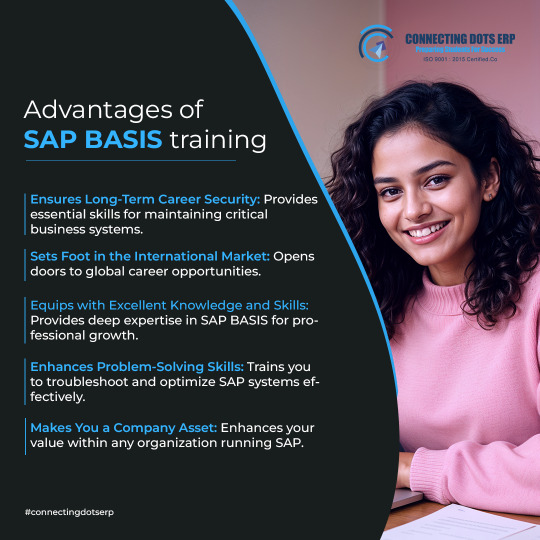
In-depth information about how learning SAP Basis can greatly advance your IT career can be found in "Unlocking Career Growth: The Benefits of SAP Basis Training." Experts in SAP Basis are essential to maintaining efficient ERP operations, from database management to system administration. Gaining practical experience and the ability to handle intricate IT environments are benefits of completing SAP Basis training. SAP Basis certification offers a route to long-term career success, whether your goal is to explore new options or develop in your current work.
0 notes
Text
The most relevant degree for studying SAP depends on the specific module or aspect of SAP you wish to specialize in. SAP is a vast ecosystem with modules catering to various domains like finance, logistics, human resources, and technology. Below are some degrees that align well with different SAP specializations:
1. Bachelor’s/Master’s in Business Administration (BBA/MBA)
Relevant SAP Modules: SAP S/4HANA Finance (FI), Controlling (CO), Sales and Distribution (SD), Materials Management (MM), Human Capital Management (HCM).
Why: These degrees provide a strong foundation in business processes, which are integral to configuring and understanding SAP systems. Business professionals can easily relate SAP functionalities to real-world applications in finance, operations, and human resources.
2. Bachelor’s/Master’s in Computer Science, Information Technology, or Software Engineering
Relevant SAP Modules: SAP ABAP (Advanced Business Application Programming), SAP Basis, SAP Security, SAP Integration (PI/PO), SAP Analytics Cloud.
Why: A technical background is essential for developing, customizing, and integrating SAP systems. Programming and database management skills are particularly useful for SAP ABAP and other technical roles.
3. Degree in Accounting, Finance, or Economics
Relevant SAP Modules: SAP FI, Controlling (CO), Treasury, SAP Banking.
Why: These degrees are highly relevant for SAP modules focused on financial accounting, controlling, and treasury management. A deep understanding of financial processes is crucial for configuring and implementing these modules.
4. Degree in Supply Chain Management or Logistics
Relevant SAP Modules: SAP MM, SAP SD, SAP Extended Warehouse Management (EWM), SAP Transportation Management (TM), SAP Integrated Business Planning (IBP).
Why: These modules deal with procurement, sales, inventory, and transportation. A supply chain background provides insights into these areas, making it easier to implement and optimize processes in SAP.
5. Human Resources (HR) or Psychology Degree
Relevant SAP Modules: SAP HCM, SuccessFactors.
Why: These modules focus on employee lifecycle management, payroll, and talent management. An HR degree helps understand and align SAP configurations with organizational HR policies.
6. Degree in Data Science, Analytics, or Statistics
Relevant SAP Modules: SAP BW/4HANA, SAP Analytics Cloud, SAP BusinessObjects.
Why: These modules emphasize data analysis, reporting, and business intelligence. A background in analytics helps in leveraging SAP tools for decision-making and reporting.
7. Engineering Degree (General)
Relevant SAP Modules: SAP Plant Maintenance (PM), SAP Production Planning (PP), SAP Quality Management (QM), SAP Project Systems (PS).
Why: Engineers are well-suited for technical and manufacturing-related SAP modules due to their knowledge of production processes, equipment maintenance, and quality control.
Key Considerations:
Career Goals: Choose a degree that aligns with your long-term career aspirations.
Role Preferences: Technical roles (e.g., SAP ABAP) favor IT-related degrees, while functional roles (e.g., SAP SD or FI) benefit from business-focused degrees.
Certifications: In addition to a degree, SAP certifications can greatly enhance your qualifications, regardless of your background.
Anubhav Trainings is indeed a well-known provider of SAP corporate training programs.
Mail us on [email protected]
Website: Anubhav Online Trainings | UI5, Fiori, S/4HANA Trainings

0 notes
Text
Career Prospects for Freshers in SAP FICO: Is It the Right Choice?
SAP FICO is an exemplary program under SAP ERP that has always been the most sought-after by fresh graduates longing to start rewarding careers in information technology. This application stands out due to its advanced features, which help handle accounting and controlling tasks; thus, it becomes unavoidable when dealing with organizational finances. However, it’s worth noting that there are several things that one needs to take into account, like job outlook or opportunities available from other positions within this field, difficulties experienced, as well as considerations to make before joining the industry.
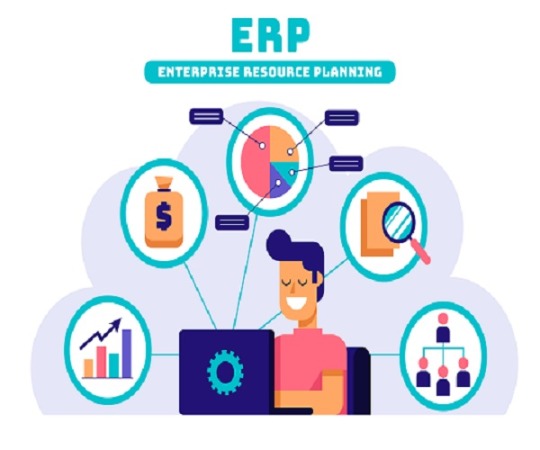
What is Sap FICO?
SAP FICO, which refers to Financials and Controlling, is a vast module meant to manage various financial operations in an organization. It consists of two main parts:
General Ledger (FI): This part handles accounts receivables and payables, asset accounting, financial transactions, and bank reconciliation. It makes sure that all financial data is recorded correctly and reported lifecycle-wise.
Controlling (CO): With an emphasis on internal management, this part includes cost management, profit center accounting, internal order management, and profitability analysis. It enables companies to base their choices on enlightening but precise financial data.
Career Prospects for Freshers in SAP FICO:
The need for SAP FICO experts is continuously increasing, especially at a time when digital conversion and globalization are the main topics of discussion. Therefore, new graduates with SAP FICO skills can find a number of career options, including:
SAP FICO Consultant: This is a normal entry-level position for recent graduates. Consultants analyze business requirements, configure SAP FICO modules, and provide support during implementation and post-implementation stages. They work together with clients to fully understand their needs in order to customize their SAP FICO solutions.
SAP FICO Developer: If you have programming skills, SAP FICO development presents exciting career opportunities. Custom code is written, and reports and interfaces are designed with the help of ABAP, the programming language for SAP developed by developers. They are essential in making adjustments in order to meet particular business needs using the SAP FICO system’s customization.
SAP Finance Associate: This position is responsible for accounting, reporting, and month-end closing procedures on SAP FICO on a daily basis. Finance associates collaborate with SAP FICO consultants and developers, ensuring that financial data are processed accurately and timely.
SAP FICO Analyst: Analysts are charged with dissecting financial figures and accompanying them with insights that will aid decision-making. They make use of SAP FICO to get out financial details, explain them, recognize development, and analyze the fiscal functioning of the company.
Why Choose SAP FICO?
There are various convincing reasons why SAP FICO offers a promising career option for recent graduates:
Strong Demand: The worldwide marketplace for SAP FICO experts is buoyant, thereby guaranteeing multiple employment chances in different sectors and geographical areas.
Attractive Pay: Professionals in SAP FICO usually earn good pay, including salaries and benefits that correspond to what their skills entail, which results in high demand from employers.
Job Progression: Newcomers have the opportunity to move swiftly into better-paying jobs and management positions because they have a background that is packed with experience as well as certificates.
Several Industries: By using SAP FICO, different sectors such as manufacturing, retailing, and finance offer a wide range of career paths.
Ongoing Learning: The SAP environment keeps changing, allowing for always learning and skill upgrading.
Challenges and Considerations:
Although the future outlooks for SAP FICO are very promising, there are some challenges and considerations to take into account:
Challenging learning path: Learning SAP FICO takes a lot of time, effort, and hard work. This is a very complicated module that takes time to master its functionalities and may prove difficult for amateurs.
Technical Skills: Functional knowledge is appropriate, and they are also some of the most apprehensible technical skills, for example, ABAP. Developers and consultants who can brag about both functional and technical expertise are so much in demand.
Project-Based Work: A lot of SAP FICO jobs involve project-based work, and that can be very difficult; everything ought to be done before time runs out as well. New graduates might need to adapt to the nature of project-based work and manage their time properly in order not to miss out on any due dates.
Competition: It’s a dog-eat-dog world out there in the domain of SAP FICO, which requires keeping abreast with new trends and technologies at all times. For instance, it is important for fresh graduates to distinguish themselves by obtaining additional certificates or developing niche skills.
Tips for Freshers Entering SAP FICO:
Gain a Strong Foundation: In order to start, it is important that you acquire a solid understanding of principles used in accounting and finance. With this solid base, you will be able to comprehend the concepts and functions of SAP FICO.
Acquire SAP FICO Certification: Enhance your credibility and job prospects by obtaining SAP FICO certification. This shows that you are skilled in this area, thus making it more competitive for other people looking for such jobs.
Seek Out Technical Skills: In order to enhance your marketability, try to learn ABAP or any other related programming language. By gaining technical skills in these areas, you will have more opportunities at hand and will also be able to engage in more complicated projects.
Acquire Practical Experience: In finance or accounting, look for internships or part-time jobs that can grant you an opportunity to gain experience. This way, you can put into practice your knowledge of SAP FICO in the actual world and comprehend business operations better.
Network: Create partnerships between experts of SAP FICO surroundings to have news and see possibilities. Through networking, important information related to careers can be gotten from other individuals, and also such people may serve as your guides in career matters.
SAP FICO is an intriguing field that fresh graduates who are interested in technology and finance can pursue as a career. Although there are challenges associated with it, the possible rewards, such as high pay, opportunities for advancement, and variety, make it a consideration worth taking. With proper career planning and skills acquisition, you can set yourself up for success in SAP FICO.
0 notes